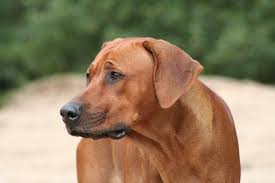Developed in the nineteenth century in Poitou, France, the Billy as we know it today is the result of the passion and hard work of Hublot du Rivault. He crossed some of the most successful hounds in order to give birth to a new breed, which was meant to carry on the legacy of the King's White Dog. The Céris and the Montemboeuf gave the new breed its small size and orange spots, while the Larye came up with the keen nose. So, added to the sharp senses and the great stamina of the King's White, the breeder managed to create a better and faster dog, perfect for hunting both small and large game.

Although strong and well-constructed, the Billy is a light dog, with a weight of about 29 kg on average, and with a height ranging from 58 cm for bitches to 70 cm for dogs. It has a medium sized head, perfectly built to enable the dog to make the most of its senses: dark eyes with black or brown rings, to offer protection from strong sunlight, a well-developed black nose for a great olfactory perception, and relatively high ears, for accurate hearing. The dog's neck is rather round and it can, sometimes, display a dewlap. The back of the body is somewhat wide and slightly arched, and the chest is very deep and quite narrow. The tail is long and strong, typical for predators, enabling a better balance and control of movements, especially during the high speed pursuits. The forequarters are more powerful than the hindquarters, giving the dog a galloped movement. The coat of the Billy is short and harsh to the touch, most often having a white color with orange spots on the head and body. Its skin is thin and white and, in rare cases, with brown patches.
Its short coat offers one great advantage: it requires little grooming. But on the other hand, it offers the dog little protection from cold weather. Therefore, this is one of the most important things an owner should keep in mind. Exposing the dog to severe cold, could lead to serious health problems. It is also mandatory to know that, since it is a natural born hunter, this dog will not do well in cities, especially in an apartment. It needs a lot of exercise, and it is no rocket science to know that, if confined to closed spaces, it will not survive. Again, it is of crucial importance to be well-aware of these facts before deciding to adopt a dog as a pet, regardless the breed. In fact, this should be mandatory concerning any kind of pets.
Otherwise, the Billy is an intelligent, courageous and dependable companion. It is easy to train and very sociable with people, so it can make a good friend, especially for children. As for its relationship with other dogs in the pack, it tends to be quite quarrelsome, so a little more superintendence than usual is necessary.
To conclude, this dog was literally born to hunt. Thus, it feels great in open spaces, and is happiest when its owner shows love and attention towards it. The stories say that only ten dogs belonging to this breed made it through the Second World War, so we could say that not only it is a great hunter, but the Billy is also a survivor.




